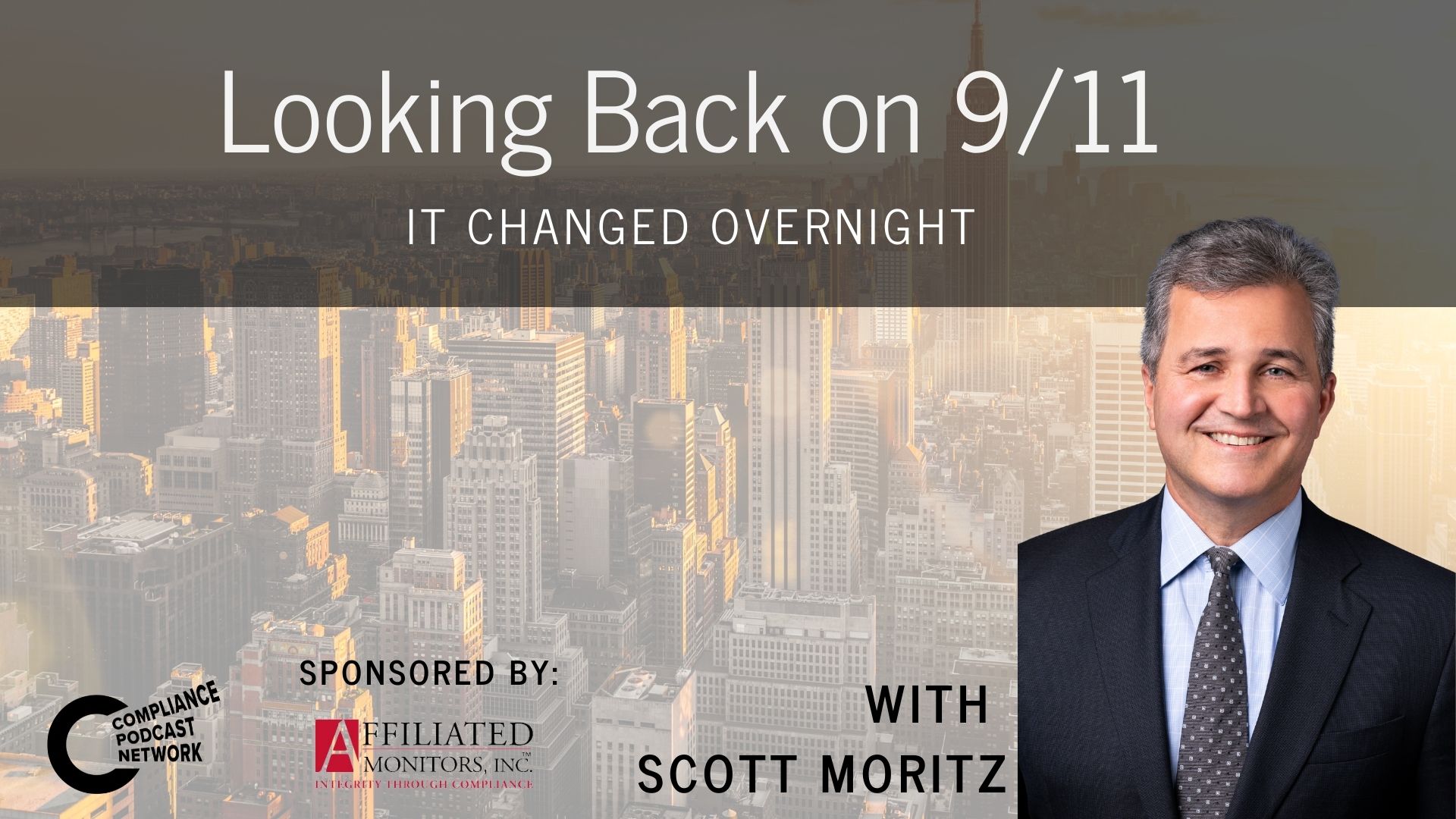
Scott Moritz is Tom Fox’s guest on this episode of Looking Back at 9/11. Scott is the Senior Managing Director at FTI Consulting Risk and Investigations, assisting clients and their outside counsel in managing their response to white collar crime, misconduct and bribery incidents. He is also the host of the podcast series, Fraud Eats Strategy. Scott joins Tom to talk about how the events of 9/11 impacted the FBI.
How 9/11 Changed The FBI: Structural and Cultural Ambidexterity
9/11 fundamentally changed the FBI overnight. Scott remarks that for a long time after 9/11, the FBI was primarily focused on the attack on the Trade Center. That was the Bureau’s main investigation, and it was being worked on by all the FBI field offices, and virtually every foreign attache office in the world. Many scholars, through various organizational studies and surveys, assumed that the FBI would have created simultaneous frontline structures and processes to balance their two competing missions: national security and law enforcement. The scholars also posited that perhaps the FBI would engage in cultural ambidexterity, which would be to refuse to take on the mission of national security altogether. The FBI did something altogether unexpected and tackled both.
The Benefit of One Agency
“There was this rapid emergence of two clear, but distinct, identities, and eventually, you know, one new unified identity FBI, but some changes where, terrorism cases were centralized at headquarters…This was a big departure from the way that the FBI normally operated,” Scott tells Tom. By staying as a single agency, the FBI had better access to local law enforcement agencies and could take better advantage of defendants with information that could advance the national security mission.
A Shift In The Private Sector
Tom asks Scott to talk about any changes in the private sector he was personally involved in. The major change in the private sector post-9/11, especially with respect to financial institutions, was the induction of the Patriot Act which also paved the way for other significant changes. Financial Institutions and broker dealers had to harden the security of buildings and supply chains across the country’s infrastructure. There was also the explosion of no fly lists, watch lists and terrorist watch lists. Banks, building owners and brokerage companies had to navigate these systems often, and quickly. Scott was very involved in helping these institutions in their anti money laundering obligations, as well as their security obligations.
Looking To The Future
Tom asks Scott to share some reflections on 9/11, and for the future. Scott remarks that post-9/11, the country was more united and people were more compassionate to one another. The best of humanity in forms of kindness and outpouring of love was seen not just from Americans to each other, but from the rest of the world to America. He hopes that someday he can see that kind of love and unity again.
Resources
Scott Moritz | LinkedIn | Twitter
Fraud Eats Strategy


